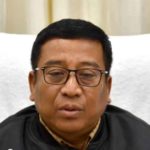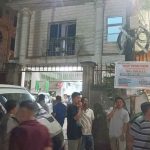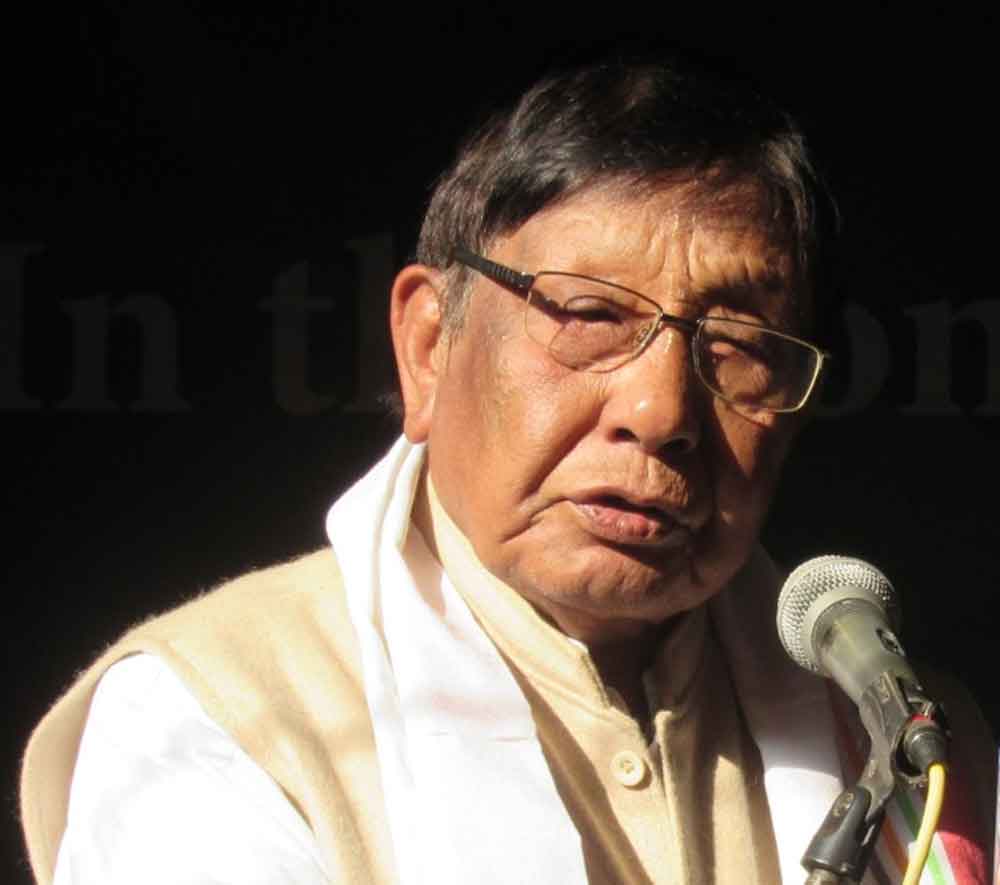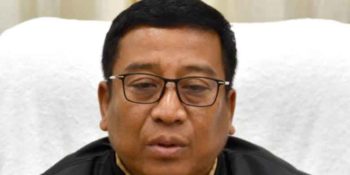Imphal: Veteran politician Okram Joy criticized chief minister N. Biren Singh for inviting protests instead of using his authority to address issues.
“A Chief Minister should not be timid,” Joy said. The chief minister’s pen could easily save Manipur and locate the missing individual, Laishram Kamal Babu, instead of calling for protest demonstrations, he added.
Joy blames the BJP-led state and central governments for the prolonged suffering of the people of Manipur.
Joy asked if the so-called Double-engine government has been able to protect human rights in the state over the past 19 months.
He made these remarks during the Universal Human Rights Day observation held at Kwakeithel, Imphal West on Tuesday.
The day was observed under the theme “Manipur and its Present Crisis and the Way Forward” at Kwakeithel, Imphal West. The event was organised by the Coordinating Committee, Naoriya Pakhanglakpa Assembly Constituency, under the aegis of RK Anand.
Kuki-Zo legislators, who had sworn allegiance to the Indian Constitution to protect the territorial integrity of Manipur, are now demanding a Separate Administration. Initially, their demand was for a Union Territory, but now they are supporting Mizoram chief minister’s call for a separate Christian country, Joy said.
Referring to a tragic incident where six internally displaced persons (IDPs) were allegedly killed by Kuki militants, Joy accused Kuki legislators of encouraging such acts.
He asked why Prime Minister Narendra Modi, Union Home minister Amit Shah, BJP National President JP Nadda, chief minister N. Biren Singh, and Speaker Th. Satyabrata, have remained silent spectators. “Are they afraid of taking action?”
He questioned whether the legislators are fulfilling their duties while the people and village defense volunteers are risking their lives to protect the territorial integrity of Manipur.
In this past 19 months, human rights in the state have become what he described as “Hui-mei” (a dog’s crooked tail that cannot be straightened).
The recent reimposition of AFSPA in certain areas of Manipur highlights the failure of political leadership and stability, he said.
He remarked that the Armed Forces (Special Powers) Act was first introduced in India by the British to suppress the voices of Indian freedom fighters. After India gained independence, the Act, with minor modifications, was reimposed in Manipur in 1970.











